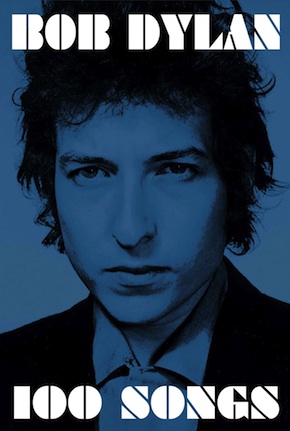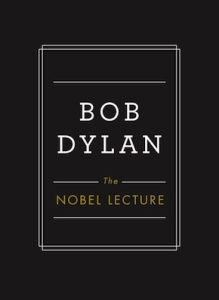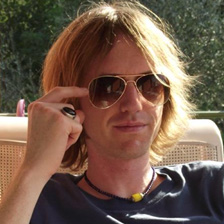Written in my soul
by Brett Marie
“Mr Dylan is a maker of images as audacious and resonant as anything in Walt Whitman or Emily Dickinson.’ Dwight Garner, New York Times
Like most avid readers, I was pleased to see British national treasure Kashuo Ishiguro win the 2017 Nobel Prize in Literature. Pleased, but a little disappointed. Ishiguro is worthy, to be sure, but in a way he was too worthy. After the lather the Nobel committee worked the literary world into last year by giving the prize to Bob Dylan, any choice short of ‘Weird Al’ Yankovic would have seemed anticlimactic.
Last year’s decision split the literary community into two camps: Team Bob and Team Anyone Else Who Could Hold a Pen. I move in musical circles, so my personal polling was skewed in Dylan’s favour, but there was no escaping the controversy. Naysayers groused long and loud on Facebook and Twitter. This year’s Nobel announcement was one last chance for Dylan’s detractors to air their grievances about his win; more than one writer on my feed used the Ishiguro selection to take one last swipe at poor Bob. To paraphrase their general sentiment: “Thank goodness we’re back to giving the Nobel Prize for Literature to purveyors of, you know, Literature.” As I had done the previous October, I scrolled past these posts without commenting. I’m a fan of Dylan, I’d gotten a kick out of seeing him win, and for the most part this past year, I’d thought of such sniping as nothing more than sour grapes.
For the most part. Much as I might like to scoff at the disapprovers, I couldn’t entirely dismiss their point of view. In giving the Prize to Dylan, the Nobel committee chose a writer whose work was primarily published in a format other than written language. And though I consider language, and not music, to be Dylan’s primary tool for expressing himself, I can’t deny that, in both his original recordings and the innumerable cover versions his songs have inspired, the singer’s voice and underlying arrangement have always given his lyrics a sonic meaning beyond their literary face value. I’ve written before about the power of music over the written word. Dylan scored big with audiences, in no small part with his hard-hitting lyrics, but I’d be a hypocrite to ignore it: for all his success, our hero was clearly corking his bat.
I hate to say it, but if you want to perform a takedown on Dylan’s prize, his non-musical output makes for some decent ammunition. His album Highway 61 Revisited is one of the more well-worn of my record collection, but I’ve long since stopped trying to penetrate the self-indulgent nonsense-riff he wrote for its back cover. His ‘novel’ Tarantula got a well-earned mauling from critics when it was released in 1970 (though, to be fair, he’d known it was trash, and only released it under duress, after the famed Dylanologist/stalker A.J. Weberman made a tidy profit selling bootlegged copies of the stolen galleys). And, more troubling, reading from Simon & Schuster’s new collection of his lyrics 100 Songs, I find more than one line coming off the page like evidence for the prosecution.
Separating these lyrics from their musical context, stripping away even the musical notation you’d find in a standard songbook, forces them to stand as the literature the Nobel people purport them to be.”
100 Songs is exactly what its title suggests: the lyrics to one hundred of Dylan’s songs, collected in a slim trade paperback. No analysis, no historical background, not even any reference to where the selections can be found in Dylan’s discography. No photos, other than the blue-tinted, scowling headshot of its author on the front cover. The blank blue pages scattered at random intervals throughout are literally the only extras you get. But if you think these are strikes against 100 Songs, let me disabuse you of that notion. Separating these lyrics from their musical context, stripping away even the musical notation you’d find in a standard songbook, this format forces them to stand as the literature the Nobel people purport them to be. It forces me, in turn, to confront my own reverence for – my near-idolatry of – Bob Dylan’s poetic genius. And that sort of challenge, let me tell you, makes for some gripping reading.
“Rock lyrics are not poetry,” write rock critics Jimmy Guterman and Owen O’Donnell in their list of ’33⅓ Rules of Rock and Roll’. I’m inclined to agree. Take the Beatles’ unassailable classic ‘I Want to Hold Your Hand’ as an example. Lyrically, Lennon and McCartney’s plea of “Oh yeah I / Tell you something / I think you’ll understand,” etc., is perfect: the words and music fuse together to make a monster hit that explodes from radio speakers to this day. Indeed, to change a single line of that song would be to diminish it. But force those words to fend for themselves alone on a barren sheet of paper, and they melt into drivel. And though any Dylan lyric is more inventive than an early-era Beatle one, reading the words to some of my favourite Dylan tunes I find more than one line suffering the same fate. Consider the opening to ‘Positively 4th Street’:
You got a lotta nerve
To say you are my friend
When I was down
You just stood there grinning
You got a lotta nerve
To say you got a helping hand to lend
You just want to be on
The side that’s winning
Listening to a Dylan spit these words out on vinyl, I can taste his bitter venom. But the words themselves are a simplistic string of easy rhymes. As poetry, they are pure high-school.
Greil Marcus put it best, in his book Like a Rolling Stone: Bob Dylan at the Crossroads: “Usually the momentum of his music passed over moments of laziness, when it was easier to plug in the words of the day than to find the words that were right.” Absent that momentum, entire songs come crashing down as I watch Dylan trot out clichés (You can have your cake and eat it too), and plug holes in his verses with moon-spoon rhyming (When the rain is blowing in your face / And the whole world is on your case / I could offer you a warm… Any guesses?). At times it’s enough to make me feel almost queasy.
Nobel laureates are required to deliver a special lecture before collecting the prize money. Dylan delivered on his obligation in June. Even then, he couldn’t escape criticism; sharp-eyed Dylan sceptics noticed numerous instances, throughout a portion of his lecture devoted to Moby-Dick, in which our esteemed lecturer appeared to have cribbed his words from the SparkNotes study guide for the book. It was a shame, one more blot on our hero’s record.
But reading the entire lecture (available online and also in print from Simon & Schuster at the end of November) actually redeems Dylan at least a little in my eyes. Dylan speaks in a conversational tone, opening with a nod to Buddy Holly as his earliest role model, before tracing the lines of influence from three literary works to his own art. For his other two touchstones, All Quiet on the Western Front and Homer’s Odyssey, he has written apparently without cribbing, and though the lecture is fairly unremarkable as an inspirational speech, and only truly informative to listeners who haven’t read the works, my ears do prick up during his Moby-Dick section when he tells us about Captain Ahab, the crew of the Pequod and the whale itself: “Highbrow, lowbrow, chasing illusion, chasing death, the great white whale, white as polar bear, white as a white man, the emperor, the nemesis, the embodiment of evil.”
That line:
“White as polar bear, white as a white man,
The emperor, the nemesis, the embodiment of evil.”
There’s a familiar rhythm to his speech, as if he could be falling into the cadence of one of his old tunes.
That little twinge of recognition sends me back to my bookshelf, where I grab 100 Songs and leaf between the blue pages until I reach ‘A Hard Rain’s A-Gonna Fall’. And I read:
I’ve stumbled on the side of twelve misty mountains
I’ve walked and I’ve crawled on six crooked highways
I’ve stepped in the middle of seven sad forests
I’ve been out in front of a dozen dead oceans
I’ve been ten thousand miles in the mouth of a graveyard
And at the end of a stanza that’s bleak and heavy, I discover I’m smiling. Despite the song’s dark mood, I’m delighted to realise, fifty-five years on, Dylan has the same rhythms beating in his subconscious.
And though I’ve read what I wanted, I don’t put the book down. The pages rifle by as if of their own power, and I land on ‘Bob Dylan’s 115th Dream’. Reading lines I’ve heard sung countless times, I nonetheless have to stifle my laughter at the point in Dylan’s absurdist narrative when our hero, trying to spring ‘Captain A-rab’ and his crew from jail, finds himself talking to the boss in a funeral parlour:
I repeated that my friends
Were all in jail, with a sigh
He gave me his card
He said, “Call me if they die”
The book will not return to the shelf. I flip back randomly and come across the well-worn words of ‘Blowin’ in the Wind’:
Yes, ’n’ how many years can some people exist
Before they’re allowed to be free?
Yes, ’n’ how many times can a man turn his head
Pretending he just doesn’t see?
My mirth of a few seconds ago dissolves as I contemplate questions posed in 1963, and realise it’s fucking 2017 and we’re in the process of erasing whatever meagre answers we managed to come up with in the intervening decades.
And at this point it dawns on me: Here I am, standing in front of my bookshelf, reading lines I know by heart, savouring them, feeling thankful that I can come here and find them staring back up at me from the page whenever I want to. This is what I do with The Great Gatsby, with The Mosquito Coast, with the newer Lincoln in the Bardo, with Dylan’s own favourite Moby-Dick. I do it repeatedly, with all my literary heroes. But how many of their words have worked their way into my life the way Dylan’s have? When I need to goad myself to try something new, in art or in life, I turn to Dylan: “He not busy being born is busy dying.” Time and again I’ve followed the lines of a great Dylan story, ‘Tangled Up in Blue’’, and come close to tears. There’s even a verse in that song to put words to all these little moments of catharsis he’s brought me, and I quickly thumb through the pages to find it:
Then she opened up a book of poems
And handed it to me
Written by an Italian poet
From the thirteenth century
And every one of them words rang true
And glowed like burnin’ coal
Pourin’ off of every page
Like it was written in my soul from me to you
Toward the end of his life, Allen Ginsberg described hearing Dylan for the first time. “There’s a poet, Charlie Plymell – at a party in Bolinas – played me a record of this new young folk singer. And I heard ‘Hard Rain’, I think. And wept.” Looking back all those years later, he choked up anew. “’Cause it seemed that the torch had been passed to another generation.” I can find no better endorsement than that.
So why didn’t this perennial outsider object to receiving one of the ultimate establishment honours? Perhaps he’s just softened with age, but I wonder if something else was at play.”
 In a speech read by the United States Ambassador to Sweden at the Nobel Banquet last December, Dylan said, “I’m sorry I can’t be with you in person, but please know that I am most definitely with you in spirit and honored to be receiving such a prestigious prize.” That speech (also available on the Nobel website) is worth reading in its own right: eloquent, good-humored and humble. He concludes it: “Not once have I ever had the time to ask myself, ‘Are my songs literature?’ So, I do thank the Swedish Academy, both for taking the time to consider that very question, and, ultimately, for providing such a wonderful answer.”
In a speech read by the United States Ambassador to Sweden at the Nobel Banquet last December, Dylan said, “I’m sorry I can’t be with you in person, but please know that I am most definitely with you in spirit and honored to be receiving such a prestigious prize.” That speech (also available on the Nobel website) is worth reading in its own right: eloquent, good-humored and humble. He concludes it: “Not once have I ever had the time to ask myself, ‘Are my songs literature?’ So, I do thank the Swedish Academy, both for taking the time to consider that very question, and, ultimately, for providing such a wonderful answer.”
He hasn’t always been so gracious. His acceptance speech for the Emergency Civil Liberties Union’s Tom Paine Award in December 1963, delivered apparently on the fly impromptu less than a month after the Kennedy assassination, managed to repeatedly insult the union’s members (many of them elder statesmen of the civil rights movement), before culminating in a bizarre expression of solidarity with Kennedy’s killer.
He defended his speech years later by claiming: “They were trying to make me an insider, on some trip they were on; I don’t think so.” I get why he would want to guard his outsider status. Outsiders play an important role in this world. An insider might get recognition, might live more comfortably, might have more friends. But the insider is bound by the rules of whatever club he’s been allowed into; he can’t call out its wrongs, or he might end up back out in the cold. The outsider, on the other hand, is free. He can speak his mind, break rules – he can challenge. And challenges have been what Dylan has gotten off on from the beginning. His early protest songs challenged American listeners to face their society’s most damaging hypocrisies. In going electric, he challenged his fans to shed their elitist folk pretensions and find value in the much-belittled pop sounds of the day. With his lyric innovation, he challenged his peers in the pop world to take their words beyond the old young-love tropes. He’s well-known for challenging his bandmates, often rearranging songs spontaneously in concert, searching for new ways to wring out meaning from tunes that would otherwise lose their impact through rote repetition. And at times he’s challenged himself, to open up his heart in public with deeply-felt lyrics of love and hurt.
So why didn’t this perennial outsider object to receiving one of the ultimate establishment honours? Perhaps he’s just softened with age, but I wonder if something else was at play. Perhaps Dylan saw that the Nobel committee had done his job for him. His selection was a challenge in itself; in considering their choice, we the public were forced to ask ourselves: What is literature? What forms can it take while still retaining its essential elements? In short, what can literature do? The committee chose Dylan for taking literary language, refashioning it to fit into the confines of popular songs, and touching the hearts and minds of millions of people – changing the world, in some small way – through that medium. The anti-Nobel backlash was just the public’s natural reaction to being taken out of its comfort zone. But these are questions that writers – and readers – should constantly be asking ourselves, if we want to keep from merely writing in circles.
I flip back to ‘Hard Rain’ one last time before setting the book back in its rightful place alongside the masters. Dylan’s last verse now reads like a manifesto:
And I’ll tell it and think it and speak it and breathe it
And reflect it from the mountain so all souls can see it
Then I’ll stand on the ocean until I start sinkin’
But I’ll know my song well before I start singin’
Seeing the verse in black type on white paper, I feel the same inner shiver I felt when I first heard it from my stereo speakers. Somewhere down the wind, I can hear Ginsberg weeping again, and right here in these pages, Bob Dylan earns his prize.
Bob Dylan: 100 Songs is published in paperback and eBook by Simon & Schuster.
Read more
 Brett Marie, also known as Mat Treiber, grew up in Montreal with an American father and a British mother and currently lives in Herefordshire. His short stories and other writing have appeared in publications including The New Plains Review, The Impressment Gang and Bookanista, where he is a contributing editor. He recently completed his first novel The Upsetter Blog.
Brett Marie, also known as Mat Treiber, grew up in Montreal with an American father and a British mother and currently lives in Herefordshire. His short stories and other writing have appeared in publications including The New Plains Review, The Impressment Gang and Bookanista, where he is a contributing editor. He recently completed his first novel The Upsetter Blog.
Facebook: Brett Marie
@brettmarie1979

